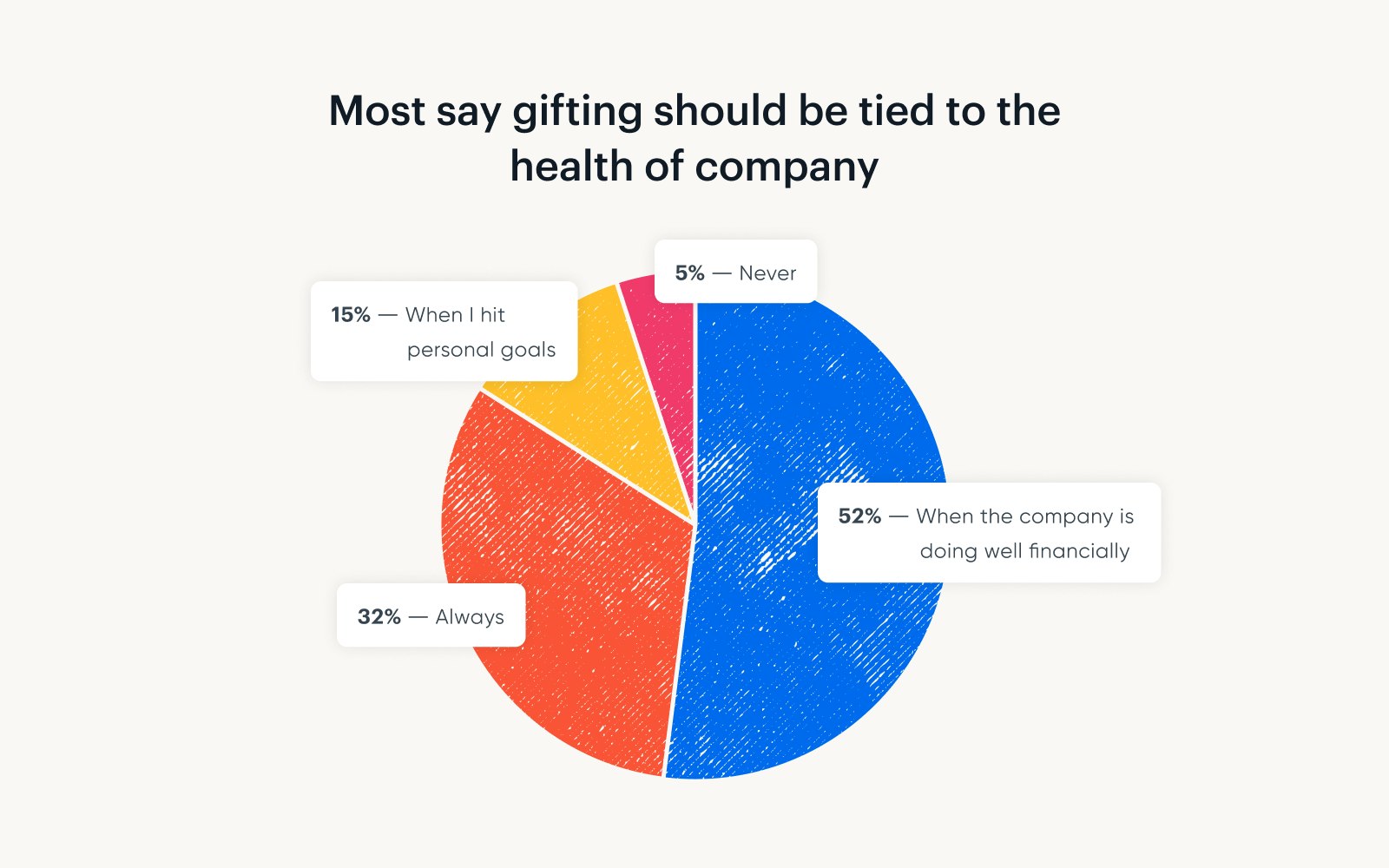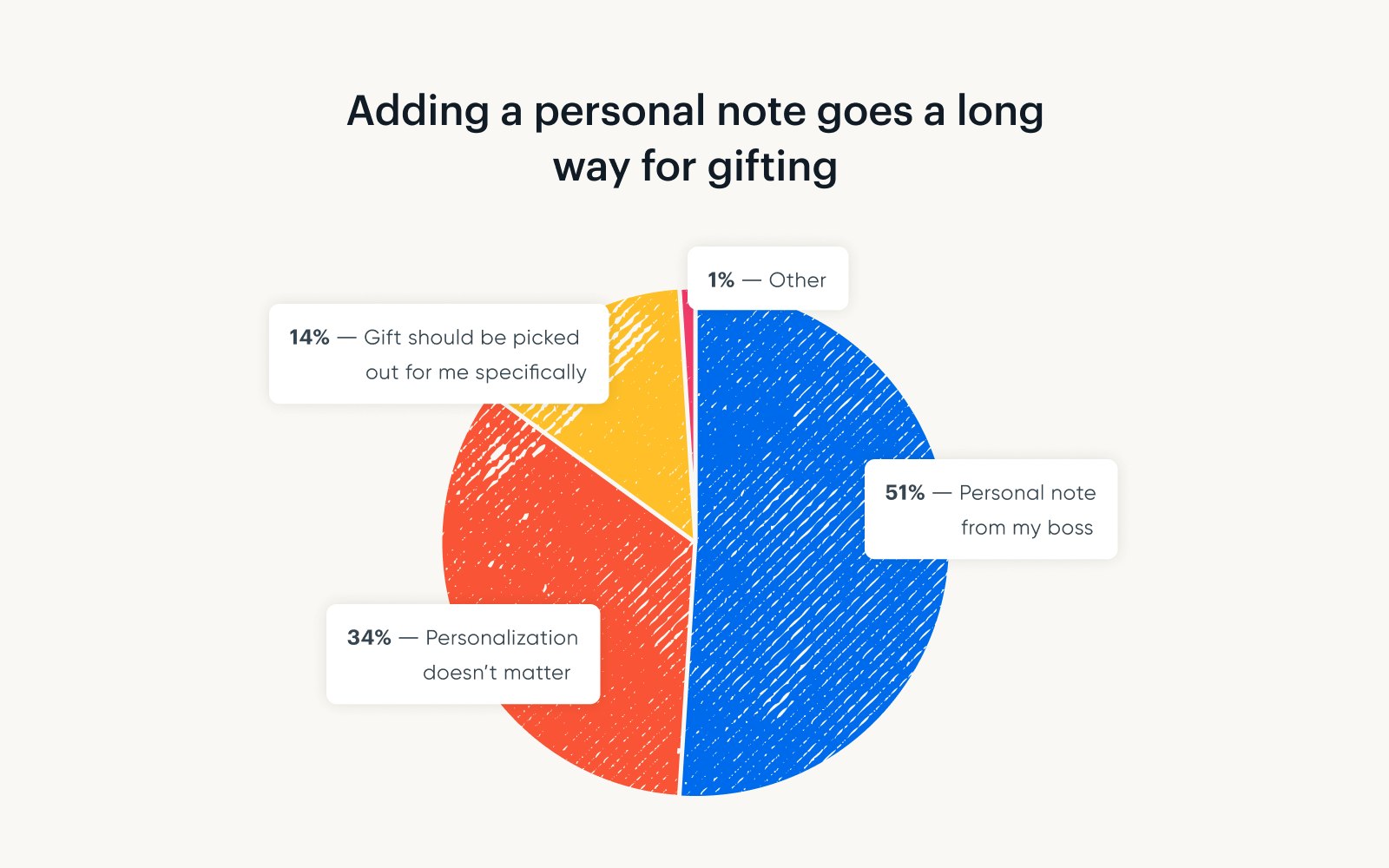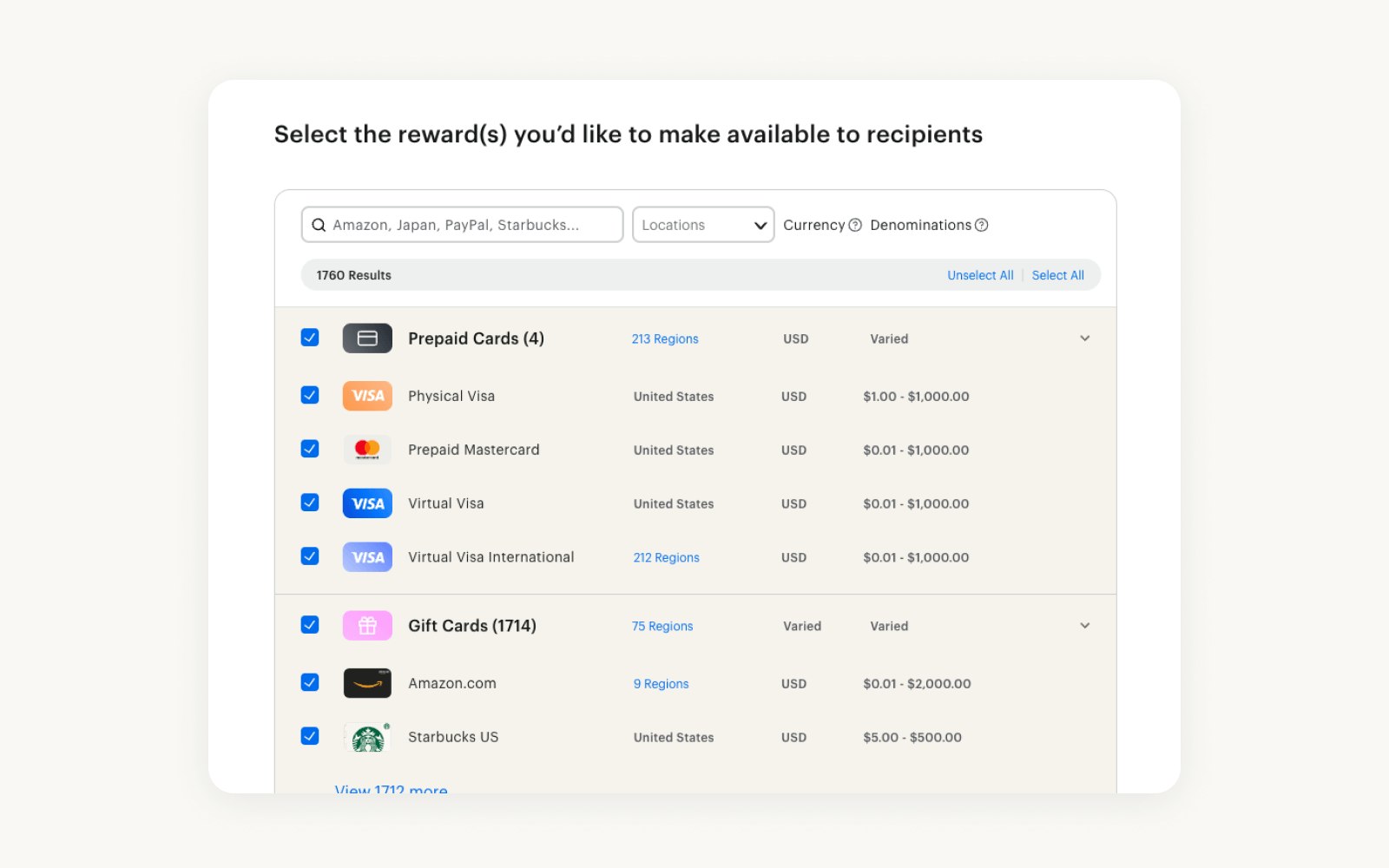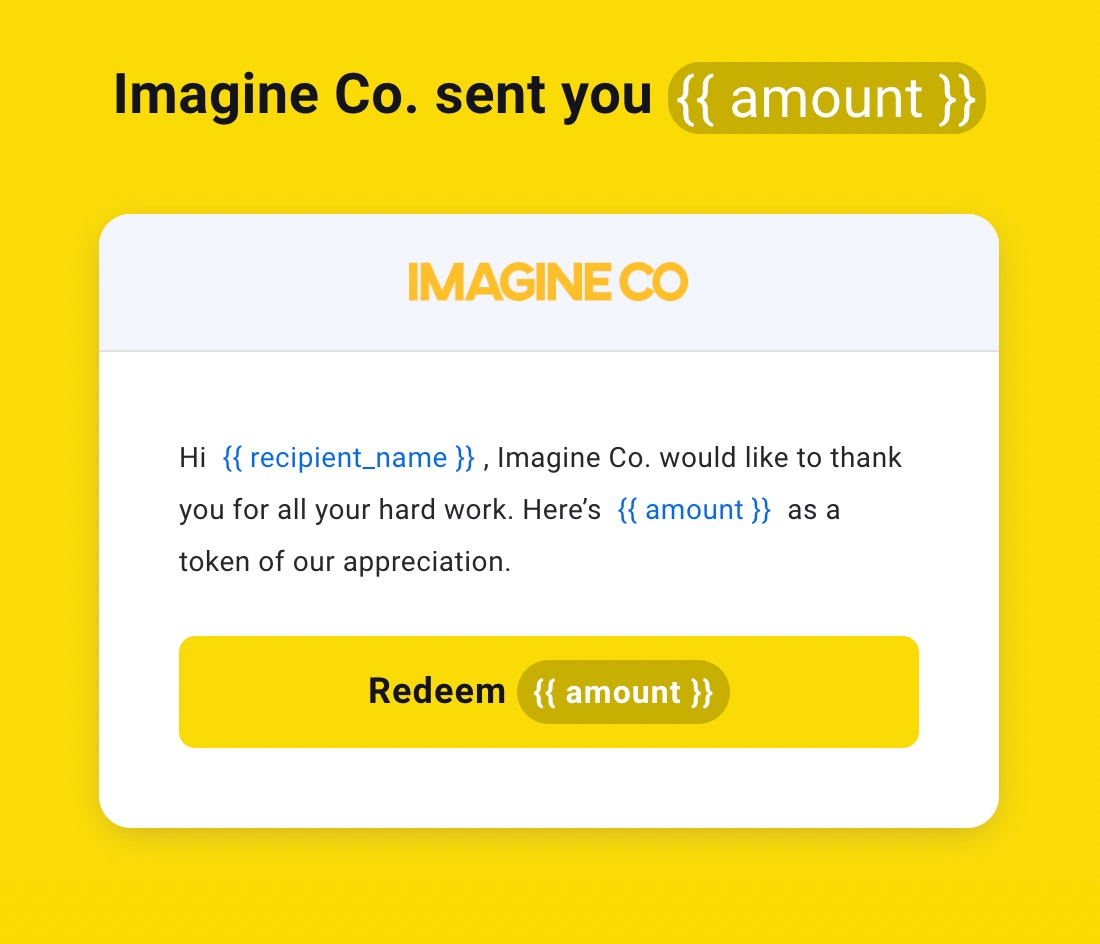How to give the ideal holiday gift to your employees
By Kate Monica●4 min. read●Oct 10, 2024

Giving employees the right holiday gift isn’t difficult – for most people, it's money. Ultimately, people just want the gift of choice.
And getting holiday gifts right is worthwhile. The ROI on the right gift is surprisingly high.
In this guide, we’ll tell you how to quickly and easily send the ideal holiday gift with Tremendous.
And you don’t need to outsource gifting. You can handle everything yourself, from personalization to sending, in 5 simple steps.
Ready to send holiday gifts with Tremendous? Sign up now or chat with our sales team.
Jump to the section you care about
Not sure whether to send holiday gifts this year?
Here are some resources that may help to inform your decision.
Step 1: Decide who will receive a holiday gift
The majority of respondents (65%) agreed that everyone at the company should receive a holiday gift.
That being said, most respondents reported they would understand if the company decided to forgo holiday gifts during a slow year. A little over half of employees said they should only receive a gift when the company is doing well financially.
“I don’t want company resources to be spent on employees when times are not great,” wrote one employee.

If it’s a difficult year, consider doing one of the following:
Halve your gifting budget, across the company: if you ordinarily spend about $100 a head, send $50 instead.
Don’t send any holiday gifts this year. Employees, on the whole, prefer that companies send a gift to either everyone or no one. Sending gifts only to upper management, or only to top performers, will rub 65% of employees the wrong way.
Step 2: Personalize your gift
By and large, respondents in our study stated they don’t care about receiving a gift picked out just for them. You don’t need to worry about buying a bike helmet for the avid cyclist at your company, or a record for the music fanatic.
However, half of respondents said a personalized note from their boss would be a nice touch.
You can use Tremendous to send an individualized note to each recipient in our custom rewards field.
That way, you can tell Alice you appreciate how she helps teammates, Bob can know his patience with difficult clients is a huge asset, etc. Or you can suggest where to spend the money, without obligating the recipient.

Step 3: Build a holiday gifting budget
According to our 2023 holiday gifting study, somewhere between $50-$100 will satisfy most (67%) employees.
To satisfy the highest number of people without straining your budget, it’s safe to cap gifts at $100.

Step 4: Use Tremendous to quickly send holiday gifts
Now comes the easy part. You can send holiday gifts to your entire company using Tremendous, in just a few clicks.
And don’t worry if you’ve got international employees. With Tremendous, you can send holiday gifts across the office or across the ocean. We offer rewards in over 200 countries, and we handle currency conversion and translation automatically. And for free.
To send gifts to all employees in a single batch, just log into Tremendous and create a branded campaign template.
Select the incentives you’d like to offer recipients. For holiday gifts, we recommend giving recipients the option to redeem flexible monetary rewards, like a prepaid Visa card, a PayPal transfer, a Venmo transfer, or an ACH transfer, which lands right in their bank account.

Then, it’s time to craft your message. Brand the email with your logo and add your own personalized message (‘Thanks for all your hard work this year’ is enough personalization for most employees).

Finally, grab an Excel spreadsheet of all employees at the company. You can export this list directly from your existing HR management software, like Rippling or BambooHR.
Format the list to include the required columns and bulk upload it within the Tremendous Dashboard.
That’s it. You’re all set.

Quick hack: Want to schedule your reward for a specific day?
You can get employee gifts off your plate early, and still ensure they hit inboxes at the most festive time of the year. We let users schedule delivery for whatever future date they choose.
Only your Tremendous Admin can do it, because these steps involve accessing your team’s settings.
If you’re the admin, though, all you have to do is:
Go to the left-hand menu, and click Team settings > Fields
Scroll down to find the Deliver at field, and select the checkbox to activate it.
When you place your order, the Deliver at field will be listed when you add recipients. Specify the date you want the reward to hit using an MM/DD/YYYY format. Example: (e.g. 12/31/2021).
When your employees access their reward via email, they can select the incentive they want. This can be a direct deposit, prepaid card, donation, or a gift card to a retailer of their choice.
Ready to send employee gifts?
Sign up and start sending rewards immediately. Or book a demo, and discuss how to approach holiday gifting with our experienced team.
